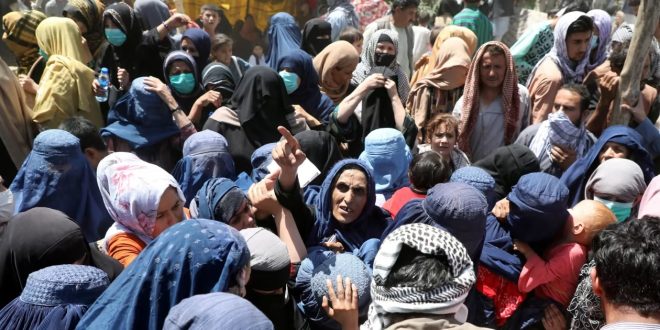AT News
KABUL – The United Nations Office for the Coordination of Humanitarian Aid (OCHA) has issued a dire warning regarding the looming catastrophe in Afghanistan caused by a lack of funds. This funding shortfall poses a significant challenge to providing assistance to millions of vulnerable individuals in the country.
According to the latest report from OCHA, insufficient funds have forced the organization to halt the operations of 25 mobile health and nutrition units in eastern Afghanistan. As a result, 1.4 million new and expectant mothers, toddlers, and preschoolers are no longer receiving crucial nutritional support.
The impact of this funding crisis is particularly severe in provinces like Nuristan, Kunar, Laghman, and Nangarhar. With the closure of these teams, over 100,000 people in the Eastern region will be deprived of basic healthcare and nutrition services.
Care International has also expressed deep concern, highlighting that 54 percent of aid organizations in Afghanistan are struggling with inadequate funds. Melissa Cornet, a humanitarian advocacy adviser with CARE, emphasized the challenges faced by their organization due to financial constraints. Insufficient funding severely hampers their ability to deliver assistance on the ground. The lack of funding emerged as the primary challenge for 54 percent of surveyed aid institutions, with limited resources and manpower further exacerbating the crisis.
In the health sector alone, the consequences of the funding shortfall are dire. An estimated 7.6 million individuals face the absence of essential life-saving health assistance if current funding levels, which remain below a quarter of the required amount, persist. Furthermore, over 31,500 households with severely malnourished children have already missed out on critical integrated cash packages for nutrition due to inadequate funding.
The education sector is also under threat, potentially leading to the discontinuation of approximately 2,800 community-based classes. This would affect 83,000 children, 59 percent of whom are girls, who only recently gained access to education following the Taliban takeover.
The International Rescue Committee’s director of Policy, Advocacy, and Communications, Samira Sayed Rahman, stressed the magnitude of the humanitarian crisis. In Afghanistan, 28 million people are in need of aid, with 15 million facing severe food insecurity. The support provided by aid agencies in the past two years has played a crucial role in averting famine, underscoring the necessity of sustained contributions.
As the funding shortfall and the escalating humanitarian crisis in Afghanistan continue to draw international attention, questions have been raised about the Taliban’s economic policies. During a meeting at the American Institute of Peace, Khalid Payandeh, the former finance minister of Afghanistan, criticized the lack of transparency and allocation of a significant portion of the budget to the military instead of essential services like education and healthcare.
 Afghanistan Times
Afghanistan Times




